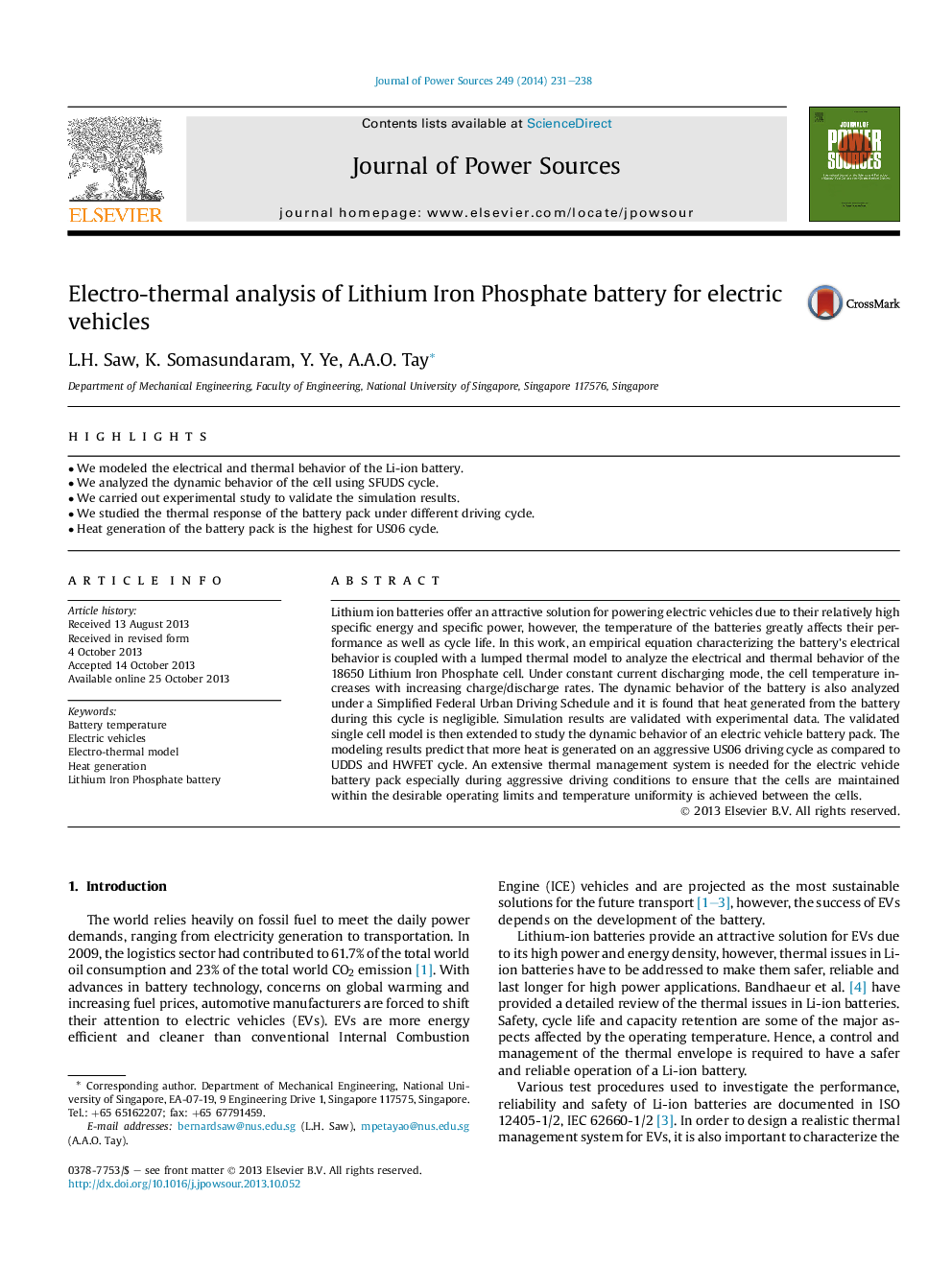| Article ID | Journal | Published Year | Pages | File Type |
|---|---|---|---|---|
| 7738387 | Journal of Power Sources | 2014 | 8 Pages |
Abstract
Lithium ion batteries offer an attractive solution for powering electric vehicles due to their relatively high specific energy and specific power, however, the temperature of the batteries greatly affects their performance as well as cycle life. In this work, an empirical equation characterizing the battery's electrical behavior is coupled with a lumped thermal model to analyze the electrical and thermal behavior of the 18650 Lithium Iron Phosphate cell. Under constant current discharging mode, the cell temperature increases with increasing charge/discharge rates. The dynamic behavior of the battery is also analyzed under a Simplified Federal Urban Driving Schedule and it is found that heat generated from the battery during this cycle is negligible. Simulation results are validated with experimental data. The validated single cell model is then extended to study the dynamic behavior of an electric vehicle battery pack. The modeling results predict that more heat is generated on an aggressive US06 driving cycle as compared to UDDS and HWFET cycle. An extensive thermal management system is needed for the electric vehicle battery pack especially during aggressive driving conditions to ensure that the cells are maintained within the desirable operating limits and temperature uniformity is achieved between the cells.
Keywords
Related Topics
Physical Sciences and Engineering
Chemistry
Electrochemistry
Authors
L.H. Saw, K. Somasundaram, Y. Ye, A.A.O. Tay,
